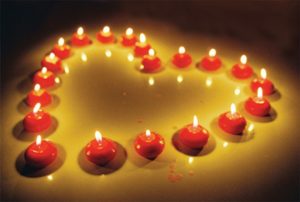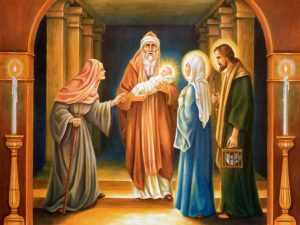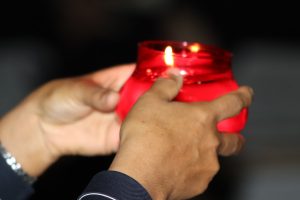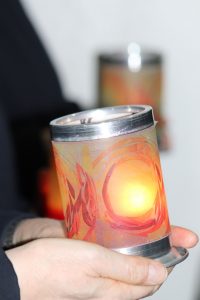 … and often a Sword in the Heart
… and often a Sword in the Heart
Every gift includes a task, a challenge and often a “sword” in the heart. We also perceive this reality in the life of Mary, the Mother of Jesus. She was chosen to be Mother of God and Mother of the expected Messiah. What a gift of God’s mercy, what an immense and undeserved gift! Very probably Mary also thought about this when she brought her little Son to the temple together with St. Joseph.
She had already experienced that her life and mission would not be easy. She had to give birth to the Savior in a stable, without the comforts of the home which she had prepared with so much love for her child.
In the temple, a new surprise awaited her: the prophecy of the prophetess Hanna and of old Simeon: They see in the child the Messiah, the Son of the Most High, the light of the nations! And Simeon leaves no doubt that Mary would also receive the sword in her heart with the great gift.
The greater the love, the greater the pain

The feast of the Presentation of the Lord in the temple is a link between the two high points of our faith: the birth of Jesus and his suffering, his death and resurrection. Simeon already points to the mission of Jesus, which will be a sign of contradiction, and a sword will pierce the heart of Mary, the Immaculate. At the foot of the cross she will be a witness to the martyrdom of her Son.
It is similar in our lives: When we receive a gift of God’s mercy, we also receive a task, a challenge and not infrequently, a “sword in the heart”.
Let us think, for example, of motherhood and fatherhood – physical or spiritual – when the child we have to care for or educate becomes ill or seriously disappoints us. Or be it in terms of another relationship. If we have a deep love for someone, our pain will be all the deeper when we see that person suffer, when he or she is sick or disappoints us deeply. The greater the love, the deeper the pain. This is part of the life of each of us
The brighter the light, the greater the shadow!

Similarly, when we are given a task, a position or simply the completion of our studies. With the “award” also comes the responsibility to do in the best way what we were asked to do. Our talents and good qualities also have their challenges; they also know a shadow side that needs to be educated. The brighter the light, the greater the shadow!
Let us think of a person who has a great talent for art or is very gifted and is endowed with a great clarity of ideas. He must also understand how to value the talents of others, not to become vain or self-sufficient. This requires self-education to humility, which can sometimes be very difficult.
An ideal of life, a vocation, to discover a profession, are gifts of God. They are also associated with sacrifice, renunciation, effort, and often a cross or a sword.
If we consider this reality of the “sword in the heart” as something self-evident in our life, we will be more resilient and will not be so easily frightened by trials that appear in our lives.
Life is like this, there is no love without suffering, no joy without sacrifice, no gift without surrender. This is how it was in the life of the dear Blessed Mother and this is also how it is in the life of each one of us. Each “sword” can become a blessing in our life. It depends on the evaluation, on our assessment, and how we stand by it.
She is with us!

The Covenant of Love with the MTA, the example of our Father and Founder and our Schoenstatt heroes help us to live this reality. Our founder tells us:
“If we have placed ourselves and our lives at the Blessed Mother’s disposal without reserve, then in a similar way she also gives herself to us completely: her mighty arm, the arm of intercessory omnipotence, the Child on her arm, the tongue of fire over her head, the Ave in her ears, the Magnificat on her lips and the sevenfold sword in her heart. (…) So we are not alone. With all our soul we can pray and sing: “And when the storm howls and the wind blows and the lightning bolts crackle fire, I think as the mariner’s child, father and mother are at the helm.”[1]